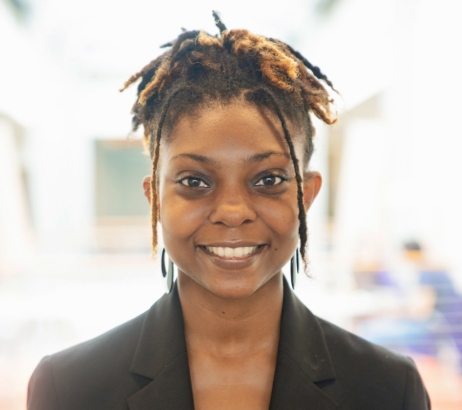Campus life can be a much different experience if you’re not sure where your next meal is coming from. Tristen Davis, associate director of Student and Community Engagement and director of the Bonner Leader Program, is meeting the need head-on through the Cap Cupboard.
“The Cap Cupboard was started in the fall semester of 2018 and focused on eliminating hunger and food insecurity on campus,” said Davis. “We’re continuing to expand it and work towards being able to cater to students who have things like soy or gluten allergies, or even students who have dietary restrictions due to their religion. Overall, we’re working towards alleviating these types of barriers for student success.”
The U.S. Department of Agriculture defines food insecurity as a lack of consistent access to enough food for an active, healthy life. Feeding America estimates that in 2020, one in eight Americans were food insecure, equating to more than 38 million Americans, including almost 12 million children. The number has only increased since the start of the pandemic.
Located on the bottom floor of the Harry C. Moores Student Union, the Cap Cupboard is a resource for all Capital students, staff, and faculty.
“We usually get 30 students per week,” said Davis. “We also provide weekend, winter and spring break bags. Anyone in the campus community can come to the Cap Cupboard when it’s open: Monday through Friday from 2 to 4 p.m. and 6 to 8 p.m. When they enter, they will scan a QR code and then grab a bag. They are free to fill that bag with whatever they need, including personal hygiene items or clothing. Once they get what they need, a volunteer updates the inventory sheet and then they can go about their day.”
To donate, visit the Cap Cupboard Amazon Wishlist. Food and hygiene product donations are always accepted and can be dropped off at the Office of Student and Community Engagement during regular business hours. Monetary gifts can also be made to Capital University with a designation to the Cap Cupboard.
“There should be no stigma around the use of the Cap Cupboard. It is for everyone. No matter who you are, if you need the support, you should feel free to come by and get whatever you want,” Davis said.
Always looking for ways to meet community needs, Davis is looking forward to expanding the Cap Cupboard to become a Community Engagement hub, which includes the Cap Closet.
“The Cap Closet will be a clothing resource center for our Capital community that will provide business professional clothing. Our hope is to provide the means for our CapFam to feel physically equipped for any professional environments they step into,” said Davis.
“If students don’t have money for food, they might not have money for other things,” said Davis. “Students who may not have access to food or basic household products or professional clothing may feel like they are ill-equipped for school or even the real world. I’m just trying to make things a little easier for everyone.”
To learn more about the Cap Cupboard, visit https://www.capital.edu/capcupboard/.


